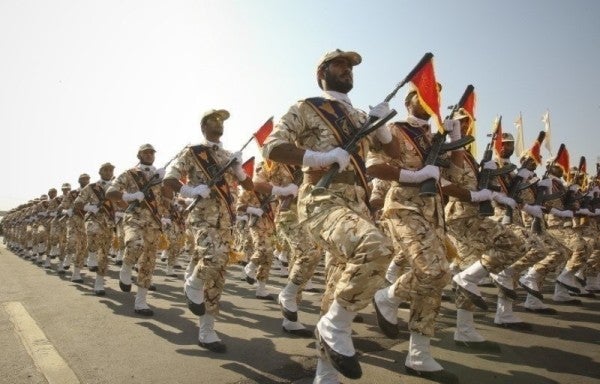How Iran secretly influences Iraq, according to Iran’s own intelligence cables
Fifteen years after the U.S. military toppled the regime of Saddam Hussein, the Army's massive two-volume study of the Iraq War closed with a sobering assessment of the campaign's outcome: With nearly 3,500 U.S. service members killed in action and trillions of dollars spent, "an emboldened and expansionist Iran appears to be the only victor. Thanks to roughly 700 pages of newly-publicized secret Iranian intelligence cables, we now have a good idea as to why

Fifteen years after the U.S. military toppled the regime of Saddam Hussein, the Army's massive two-volume study of the Iraq War closed with a sobering assessment of the campaign's outcome: With nearly 3,500 U.S. service members killed in action and trillions of dollars spent, “an emboldened and expansionist Iran appears to be the only victor.
Thanks to roughly 700 pages of newly-publicized secret Iranian intelligence cables, we now have a good idea as to why.
The documents, leaked to The Intercept and shared with the New York Times, appear to detail “years of painstaking work by Iranian spies to co-opt the country's leaders, pay Iraqi agents working for the Americans to switch sides, and infiltrate every aspect of Iraq's political, economic, and religious life” in the aftermath of the 2003 U.S. invasion of Iraq, according to The Intercept.
Highlights from documents reportedly include include:
- Some real life spy shit: “Meetings are arranged in dark alleyways and shopping malls or under the cover of a hunting excursion or a birthday party. Informants lurk at the Baghdad airport, snapping pictures of American soldiers and keeping tabs on coalition military flights. Agents drive meandering routes to meetings to evade surveillance. Sources are plied with gifts of pistachios, cologne, and saffron. Iraqi officials, if necessary, are offered bribes.”
- Recent visits to Baghdad from Gen. Qassim Suleimani, the head of Iranian Revolutionary Guard Corps' Quds Force, to “persuade in the Iraqi Parliament” to help embattled Iraqi Prime Minister Adil Abdul-Mahdi maintain his position amid widespread protests,” according to the Intercept.
- Cultivating “special relationship” with Iraqi officials, especially those who had previously fought alongside Iranian forces as members of opposition groups during Saddam Hussein's rule. One Iranian political analyst told The Intercept that Tehran had a “good number of allies among Iraqi leaders who we can trust with our eyes closed.”
- Persuading former Iraqi CIA informants to switch sides following the U.S. troop withdrawal in 2011, so far that Iran even “began the process of recruiting a spy inside the State Department,” according to the Intercept: “The CIA had tossed many of its longtime secret agents out on the street, leaving them jobless and destitute in a country still shattered from the invasion … Short of money, many began to offer their services to Tehran.”
What's even more startling than the revelations detailed in the Intercept report is the anonymous source, ostensibly an Iraqi official. Their reasoning for leaking such a highly-sensitive trove of cables, they told the Intercept, was simple: to “let the world know what Iran is doing in my country Iraq.”
